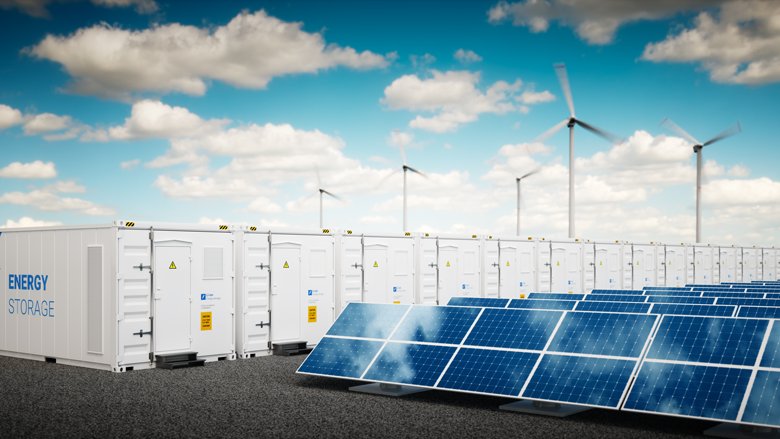Challenge
SDG 7 emphasizes the need for affordable, reliable, sustainable, modern energy for everyone; access to renewable energy sources is key for the achievement of this SDG. Power systems in developing countries require flexibility to operate renewable energy sources reliably due to their variability. Increasing the share of variable renewable energy (VRE), such as wind and solar power, introduces additional variability and uncertainty: solar photovoltaic (PV) output can change when a cloud passes by a PV system, and wind power output can also vary instantly and from season to season. Energy storage is essential to achieve the needed power systems flexibility to cope with expected and unexpected demand and supply changes.
Approach
ESMAP’s Energy Storage Program has convened and is hosting the global Energy Storage Partnership (ESP). The ESP is an international partnership between the World Bank and 43 other entities which fosters international technological cooperation and training to develop and adapt to new energy storage solutions tailored to the needs and conditions of developing countries. It does so through:
- Technical assistance: market assessments and roadmaps for scaling up storage; project feasibility studies, grid expansion plans, risk assessments; and studies to support the legal/regulatory framework for storage project business models.
- Global knowledge generation, stakeholder engagement, fostering international cooperation, and technical capacity building through a mentoring program for women working in the energy storage industry.
Results
Scaling up sustainable energy storage investments: During its first two years, 2021-22, the Energy Storage program supported clients by informing 14 WB lending projects (including six mini-grid projects) on addressing renewable energy deployment and storage solutions and committing financing for battery storage capacity of 2,527 MWh (2,093 GWh in International Development Association -IDA-supported countries).
Generating and providing global knowledge on energy storage solutions: The program helped Maldives assess the technoeconomic feasibility of solar PV and battery storage for selected islands. The study provided a methodology for the transition toward solar PV and energy storage, proving financial feasibility and confirming that they are the least-cost option to displace conventional diesel generation, which was critical to inform the WB-funded Accelerating Renewable Energy Integration and Sustainable Energy (ARISE) Project, aimed at generating 50 MWh battery storage capacity.
In the Economic Community of West African States (ECOWAS), the Energy Storage Program's support was critical in preparing the Regional Electricity Access and BEST Project. The program, it funded a Battery Energy Storage System (BESS) allocation study which identified optimal battery storage capacities of 205 MWh of BESS equipment for Cote D'Ivoire, Mali, and Niger.
In Ukraine, the Energy Storage Program supported a variable renewable energy (VRE) integration analysis of grid-scale battery storage’s potential role in developing and balancing Ukraine's ancillary service market. As a result, the installation of Hybrid Systems for Electricity Production of 400 MW was incorporated into the Improving Power System Resilience for European Power Grid Integration project.
Leveraging technology for facilitating knowledge exchange: the program developed the Energy Storage Sizing App that countries can use to obtain a preliminary assessment of the energy storage sizing requirements and to project the cost of hybrid solar PV and energy storage systems, using storage for smoothing and shifting applications. This tool informs estimations for early discussions around new greenfield solar PV and battery energy storage hybrid projects in developing countries.
The Energy Storage Academy was established to create a space for knowledge-sharing on energy storage. The academy is the platform which disseminates to World Bank clients the knowledge generated by the different working groups of the ESP. During 2020 and 2021, 39 countries participated and 16 have projects receiving WB support. In addition, the academy organized 10 training sessions, providing information about deploying battery energy storage projects in developing countries,
The ESP also organizes a Women in Energy Storage mentoring program with the Global Women's Network for the Energy Transition (GWNET). The first cohort had over 240 applicants from 50+ countries. 25 mid-career mentees from 17 countries (including Brazil, Morocco, Nigeria, Kenya, India, China), working in utilities, government, small businesses, private sector, consulting, and academia, participated. The mentees' enhanced knowledge and professional development skills will reduce the sector’s gender gap.


